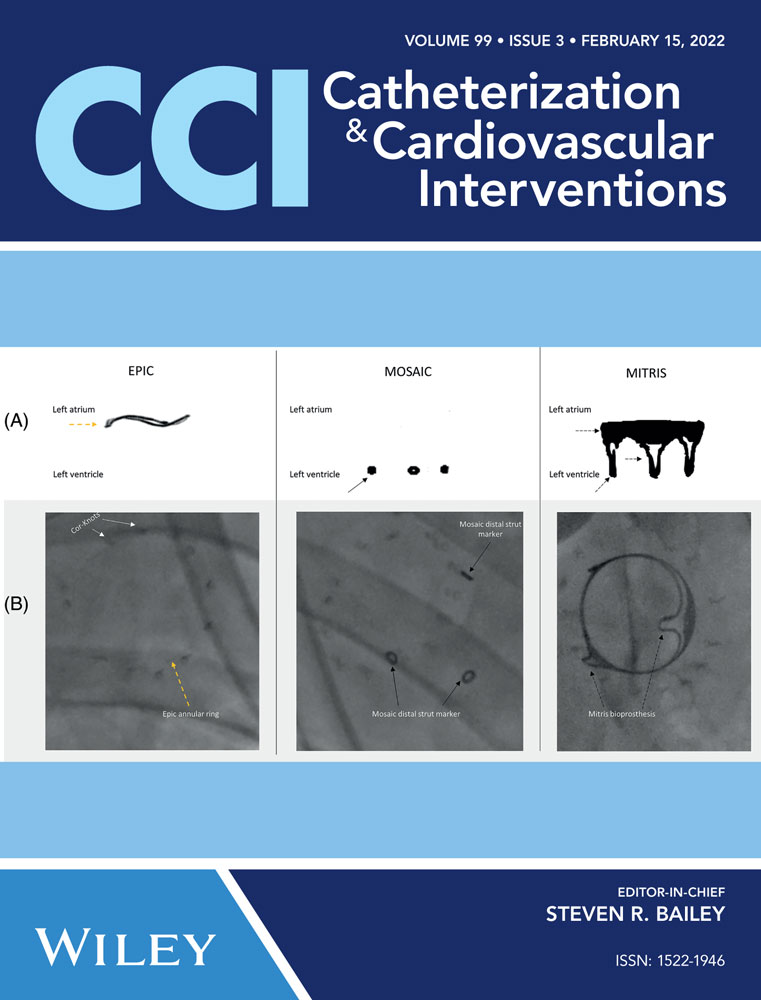Next-generation balloon-expandable Myval transcatheter heart valve in low-risk aortic stenosis patients
Abstract
Objectives
We aimed to describe hemodynamic performance and clinical outcomes at 30-day follow-up of the balloon-expandable (BE) Myval transcatheter heart valve (THV) in low-risk patients.
Background
The results of the next-generation BE Myval THV in low-risk aortic stenosis (AS) patients are still unknown.
Methods
Retrospective registry performed in nine European centers including patients with low predicted operative mortality risk according to Society of thoracic surgeons (STS) and European system for cardiac operative risk evaluation (EuroSCORE-II) scores.
Results
Between September 2019 and February 2021, a total of 100 patients (51% males, mean age 80 ± 6.5 years) were included. Mean STS score and EuroSCORE-II were 2.4 ± 0.8% and 2.2 ± 0.7%, respectively. Intermediate sizes were used in 39% (21.5 mm: 8%, 24.5 mm: 15%, 27.5 mm: 15%). There were no cases of valve embolization, coronary artery occlusion, annulus rupture, or procedural death. A definitive pacemaker implantation was needed in eight patients (8%). At 30-day follow-up aortic valve area (0.7 ± 0.2 vs. 2.1 ± 0.6 cm2) and mean aortic valve gradient (43.4 ± 11.1 vs. 9.0 ± 3.7 mmHg) improved significantly (p < 0.001). Moderate aortic regurgitation occurred in 4%. Endpoints of early safety and clinical efficacy were 3 and 1%, respectively.
Conclusions
Hemodynamic performance and 30-day clinical outcomes of the BE Myval THV in low-risk AS patients were favorable. Longer-term follow-up is warranted.
CONFLICT OF INTEREST
Dr. Amat-Santos is proctor for Meril Life and Boston Scientific. Dr. Won-Keun is proctor for Boston Scientific, Meril Life Sciences, Abbott, speaker fees/advisory board from Boston Scientific, Abbott, Edwards, Medtronic, Meril Life Sciences, Shockwave Med. MATCH-BALL study protocol (NCT04548726).
Open Research
DATA AVAILABILITY STATEMENT
Dataset is available for internal review and open to research proposals.




